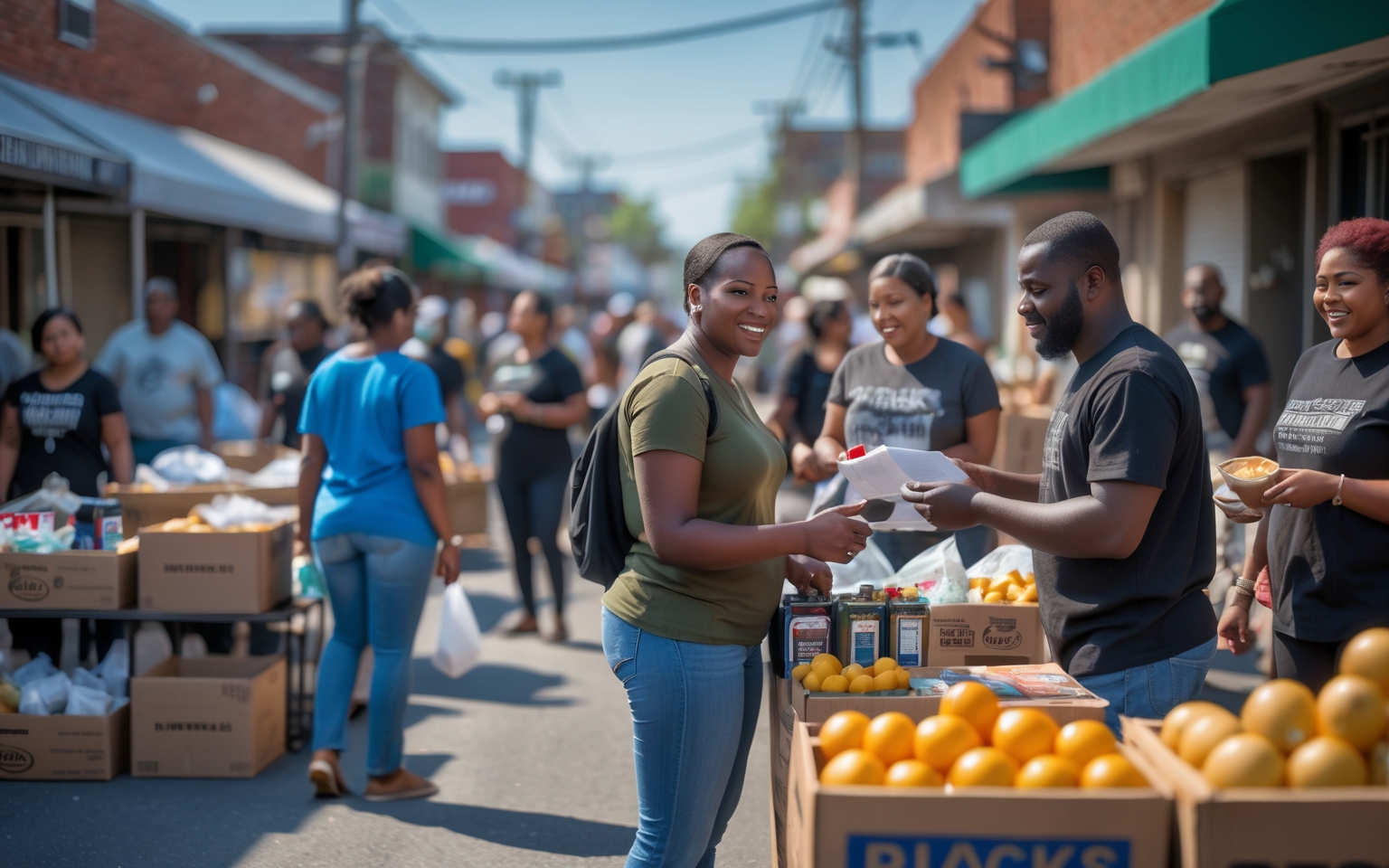Economic policies play a pivotal role in shaping the financial empowerment of Black communities. They address enduring inequalities and create pathways for progress. While some policies aim to close these gaps, others might inadvertently maintain or widen disparities.
Key areas where economic policy impacts Black communities include access to capital, job creation, housing investment, education funding, and tax policies that incentivize wealth-building. Effective management of these components enhances intergenerational wealth, boosts homeownership rates, and invigorates economic mobility.
Access to Capital and Credit
Access to capital underpins the financial upliftment of Black communities. Policy measures should focus on reinforcing Community Development Financial Institutions (CDFIs), promoting investments in Black-owned businesses, curbing discriminatory lending practices, and supporting Black-owned financial institutions.
The Biden administration’s move to inject $100 billion into CDFIs and Minority Depository Institutions (MDIs) is a prime example of reducing entrenched barriers to capital access, thereby enhancing the economic footprint of Black communities.
Job Creation and Workforce Development
Job creation and workforce development are essential for empowering Black communities. Strategic approaches include targeted infrastructure investments, industry-specific training, support for Black entrepreneurship, and enhanced labor rights.
The American Jobs Plan, with its significant infrastructure and clean energy investment proposals, holds promise for transforming employment landscapes and creating meaningful opportunities if implemented inclusively.
Housing and Neighborhood Investment
Housing policies are integral for community stability and wealth creation. Essential interventions include increasing affordable housing, promoting homeownership programs, addressing residential segregation, and revitalizing neglected areas.
Initiatives like down payment assistance for first-generation homeowners exemplify efforts to narrow the racial homeownership gap, a critical factor in addressing racial wealth disparities.
Education Funding and Opportunities
Education and economic outcomes are closely linked, necessitating policies that balance funding disparities, enhance access to higher education, support Historically Black Colleges and Universities (HBCUs), and invest in early childhood education.
Expanding the maximum Pell Grant and strengthening support for HBCUs contribute significantly to educational and economic mobility for Black students, paving the way to financial resilience.
Tax Policies and Wealth-Building Incentives
Tax policies can either exacerbate or mitigate the racial wealth gap. Key strategies include refining the Earned Income and Child Tax Credits, identifying biases in the tax code, and promoting long-term savings through innovative programs like “baby bonds.”
Permanently expanding the Child Tax Credit is noteworthy for its potential to significantly reduce child poverty among Black households, supporting economic stability.
Ensuring Equitable Policy Implementation
Policymaking must be equitable and accountable: this requires disaggregated data collection, prioritizing Black voices in policy discussion, addressing institutional biases, and ongoing policy evaluation to address Black communities’ nuanced realities.
The Federal Reserve’s considerations of racial equity underscore the importance of embedding equity in policy frameworks to deliver empowerment.
Leveraging Economic Policies
While systemic shifts are crucial, individuals can leverage economic policies for personal empowerment by navigating homebuyer assistance, exploring Small Business Administration resources, maximizing tax benefits, engaging in industry-centered job training, and staying informed on policy developments.
Initial steps in awareness and utilization of these programs can significantly aid both individual and community financial progress.
Ultimately, intersecting effective economic policies with proactive community engagement holds the key to transformative empowerment for Black communities globally.
#Empowerment #EconomicPolicies #BlackCommunity #FinancialGrowth


